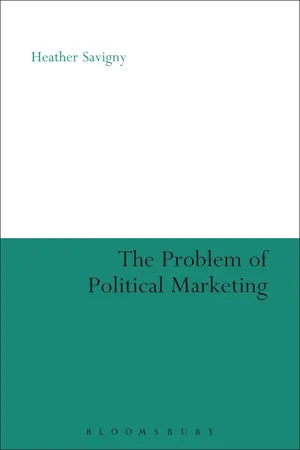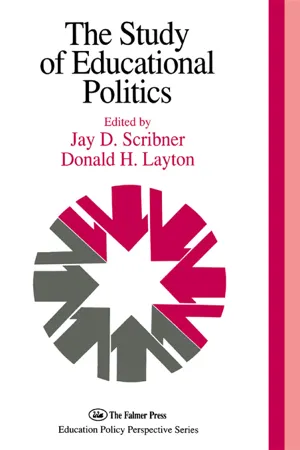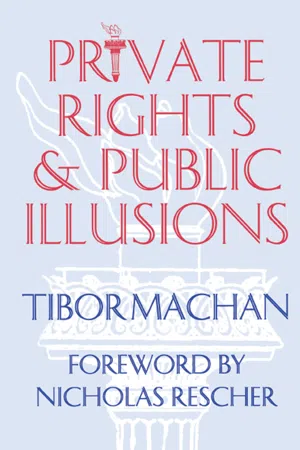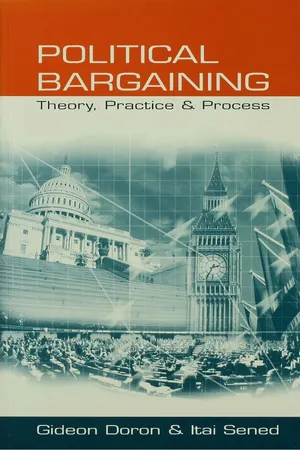Politics & International Relations
Rational Choice Theory
Rational Choice Theory is a framework that assumes individuals make decisions based on rational calculations to maximize their own self-interest. It is often used to analyze political behavior and decision-making processes. This theory suggests that individuals weigh the costs and benefits of different options and choose the one that best serves their interests.
Written by Perlego with AI-assistance
Related key terms
5 Key excerpts on "Rational Choice Theory"
- eBook - ePub
- Heather Savigny(Author)
- 2011(Publication Date)
- Continuum(Publisher)
Most prominently these accounts in political science are located within Rational Choice Theory. Rational choice adopts the methodology of neoclassical economics and seeks to model the behaviour of individuals. This begins with the assumption that individuals are rational actors, seeking to maximise their utility, who have expressed identifiable and transitive preferences. They use means-ends strategies in order to achieve their goals. As such, rational choice provides a model, or series of models, through which the use of parsimonious assumptions facilitates the simplification of reality. This is done in order to explore the way in which actors optimally adapt to their circumstances and pursue the rational course of action available to them. This enables analysts to account for (and explain) political behaviour and generate predictions. As with marketing, this approach has a normative aspect in that it suggests how actors should behave in order to achieve their goals; prescribing a focus on the means of achieving goals, rather than what those goals should be. These approaches are also positive in that ‘what is’ and/or ‘what if questions are addressed; implications are deduced from a set of premises. 4 Rational choice is both a theory and a method. It is a method of studying politics using a particular set of assumptions. These assumptions are used to construct models from which deductive explanations of individual behaviour are produced. It is also a theory because the use of these models has generated a set of coherent arguments about the nature of political competition. Methodologically both approaches proceed in the same manner - eBook - ePub
The Study Of Educational Politics
The 1994 Commemorative Yearbook Of The Politics Of Education Association 1969-1994
- Jay D. Scribner, Donald H. Layton(Authors)
- 2003(Publication Date)
- Routledge(Publisher)
8. Rational Choice Theory and the politics of education: promise and limitations
William Lowe Boyd, Robert L.Crowson and Tyll van GeelFew people would disagree that politics is a contest over ‘who gets what, when, and how’ (Lasswell 1936). Clearly and inevitably, it involves strategy and tactics, gamesmanship, bargaining, coalition building, and the like. How to ‘win’ at politics has fascinated humans since the dawn of history. But, until comparatively recently, the ‘how to win’ literature was mainly a collection of pithy insights and proverbs. It was far from anything resembling a science capable of analyzing, let alone predicting, the relevant strategic permutations. With the advent and development of Rational Choice Theory—of which game theory (von Neumann and Morgenstern 1944), collective choice theory (Arrow 1951, Black 1958, Buchanan and Tullock 1962, Riker 1962), and economics are but three branches—all this has changed. Rational Choice Theory has altered the face not only of political science, but of sociology and organizational theory. While not dominant, and indeed often controversial in these fields (e.g., Lowi 1992), these new approaches, grouped under the rubric of Rational Choice Theory, have permanently altered their landscapes. Moreover, beyond influencing the social science disciplines, the new approaches have had profound effects on the practical world of policy. The whole field of policy analysis (for better or worse) is heavily influenced by economic models and the cost-benefit paradigm. Government policies, big business strategies, and international calculations with respect to war and peace are increasingly influenced by mathematical modelling and game theoretic approaches (see, e.g., Bueno de Mesquita et al - Howard Wiarda(Author)
- 2019(Publication Date)
- Routledge(Publisher)
This chapter seeks to offer such an assessment. It begins by presenting a definition of RCT. Thereafter, the claims about the central benefits of RCT are assessed. In a third section, basic trends in the use of RCT in comparative politics are discussed. To anticipate the basic thrust of this assessment, my views of RCT are decidedly mixed. On the positive side, RCT draws attention to the role of actors and their choices and, in its game theory variant, also highlights the strategic dimension of politics. On the negative side, it is weakened by two important problems. First, RCT research has not been guided by a clear and consistent identification of the domains where it is applicable, that is, the issues or problem areas where the assumptions of RCT hold. Moreover, inasmuch as these domains are identified, it is likely that RCT's lack of applicability in domains of great significance will be revealed. Second, RCT does not offer a complete theory of action, in many cases even in those domains where it is applicable. Thus, this chapter suggests that students of comparative politics should strive to assimilate the emphasis on actors and instrumental rationality that are a characteristic of RCT, but go beyond RCT and built a broader, more encompassing theory of action.What is Rational Choice Theory?
Rational Choice Theory became the core of economic theory in the wake of the decline of the classical political economy of Smith, Ricardo, and Marx and its displacement by marginalist economics in the late nineteenth century.2 It began to make inroads in political science in the 1950s through the pioneering research on political problems using an economic perspective by Duncan Black, James Buchanan, and Kenneth Arrow and the somewhat later work by Anthony Downs, Mancur Olson, and William Riker.3 Within comparative politics, however, the emergence of RCT represents a later development. Indeed, during the 1960s and 1970s, it is probably accurate to state that sociological theory was dominant. But in the early 1990s, RCT emerged in full force and was strongly promoted by prominent comparativists such as Ronald Rogowski, Robert Bates, and David Laitin.As an increasingly popular term, "Rational Choice Theory" has been used to describe research that may seem quite diverse, making its meaning somewhat ambiguous. But the term Rational Choice Theory actually stands for a precise set of principles, which distinguish it from other theories. As a first approximation to defining RCT, it bears stressing that RCT is first and foremost a theory of decisionmaking that rests on the expected utility principle, which states that individuals make decisions that maximize the utility they expect to derive from making choices. Thus, RCT can be distinguished from rival theories on the basis of two key issues. First, in light of its emphasis on actors, RCT is an agent-based theory that is distinguished from theories that do not stress the role of actors, such as structuralism (see Figure 1). Second, RCT can further be distinguished from a large variety of agent-based theories on the basis of the principle of action these theories use. Thus, what defines RCT in this regard is its use of the expected utility model, which distinguishes RCT from other approaches to decisionmaking, such as offered by the theory of bounded rationality, the cognitive theory of rationality, evolutionary theory, and various other theories.4- eBook - ePub
- Tibor R. Machan(Author)
- 2018(Publication Date)
- Routledge(Publisher)
rational is valid in part (since logic is an aspect of rationality), we need to examine the idea of rationality before concluding that there are no rational guides to public action. As I will show, Friedland and Cimbala gave up too early; there is a way to conceive of rationality and, also, of rational public choice that can meet at least the more telling objections to the idea.My procedure will involve, first, the definition of the concepts describing our field of inquiry so as to identify the standards by which to evaluate the steps taken within the field. I will identify the criterion of rational choice (or formulation) of theories concerning any field of inquiry. From there I will move on to the specific requirements for formulating or selecting a theory of public choice. Here I will focus on the nature of public affairs and will indicate why the present treatment is superior to those offered by the usual decision theories. I will end by indicating how this discussion, if taken seriously, can enhance the actual institution of rational decision making within the domain of politics.For the moment, however, we are not concerned with rational public choice itself but with choosing a theory of such choice. For both aspects of the discussion we need to know what a theory is. Only then will we come to the issue of what, in theories of pubic choice is the rational choice.On Rationality
For purposes of initial scrutiny, let us separate rational and choice . But, lest we fail at the outset, we need to defend, briefly, a way of going about answering such questions as what rational and choice mean. This may look like trying to begin without the prospect of getting off the ground, since all beginnings seem to pose the problem of needing support. But it is just a mistake to believe that no starting point is warranted as such, as Aristotle noted long ago. Some matters really cannot be questioned or doubted with any hope of being understood, despite what some current schools of philosophy—Richard Rorty’s form of pragmatism, for instance—suggest.13 - eBook - ePub
Political Bargaining
Theory, Practice and Process
- Gideon Doron, Itai Sened(Authors)
- 2001(Publication Date)
- SAGE Publications Ltd(Publisher)
1 A Conceptual Framework for the Study of Political Bargaining1.1 Introduction
The introductory chapter presented the theoretical context in which the phenomenon of political bargaining should be understood. It defined the phenomenon and explained how it evolved and its prevalence in our lives. Finally, it outlined several factors that are always present in the process of political bargaining. In this book we look at the various levels of political bargaining. To follow our argument, the reader needs to be familiar with some basic conceptual tools used in our theoretical analysis.The theoretical approach we adopt is referred to as Rational Choice Theory. This means that we adhere to two basic premises: methodological individualism and purposeful action. The first premise implies that political outcomes result from actions taken by rational individual agents in society. The second premise postulates that these rational agents have goals that they try to achieve within the framework of the physical environment in which they operate and in the context of their expectations of other agents.The purpose of this book is to explain how strategic choices made by individual rational actors yield, through complex bargaining processes, the political outcomes that define the social orders in which we live.It is appropriate to evaluate the merits of political outcomes in normative terms. Here, however, we are mainly concerned with a positive theory of the bargaining process through which social order emerges and evolves. We provide explanations for processes and outcomes, with little, if any, attempt to evaluate their ethical merits and demerits. Our purpose is to provide tools for understanding, not tools for normative evaluation. Some judge this approach as normatively objectionable because it restricts itself to the study of the rational aspect of human behavior as a foundation for explaining political outcomes. We find this objection out of place. If we are able to explain political phenomena we contribute to the science of human behavior. We have our normative values like everyone else, but we are not students of ethics, we are students of politics. We are not ignorant of or oblivious to normative evaluations. We simply leave it to others to study ethics while recognizing that the tools we use allow us to study only the positive side of human interactions in the political sphere.
Learn about this page
Index pages curate the most relevant extracts from our library of academic textbooks. They’ve been created using an in-house natural language model (NLM), each adding context and meaning to key research topics.




